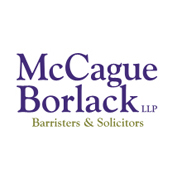By Nawaz Tahir and Ali Aghaeinia
This paper was first presented by Nawaz at a client seminar.
Background
Expert evidence plays an important role in civil litigation, by providing information where the court does not have the requisite knowledge to make findings of facts that are relevant. Given this significant role, there are strict rules as to the admissibility of expert evidence as well as the timetable for the provision of which to ensure a fair trial. Recent amendments to the Rules of Civil Procedure1 impose stricter limits when it comes to admissibility of such evidence where there is a delay in serving the expert reports.
In order for expert evidence to be admissible, it must meet the test set out in White Burgess Langille Inman v Abbott and Halliburton Co.2 by the Supreme Court of Canada, which slightly refined the old Mohan test that had been the central standard for some time. That is, it must be relevant, it must be necessary in assisting the trier of fact, there should not be any exclusionary rule, the expert should be qualified, where the evidence is based on novel science it should be reliable, and the probative value should exceed the prejudicial effect. This paper will mainly focus on the exclusionary rules as they relate to the recent changes that came into effect on March 31, 2022. These are rules that may exclude an expert even after all the other steps in the above test are met.
Compliance With the Rules of Civil Procedure
According to Rule 53.03(2.2), within 60 days of an action being set down for trial, the parties shall agreed to a timeline for the service of expert reports. In our experience, this Rule is being inconsistently applied across the province. Some jurisdictions, like London, where there is an Assignment Court to obtain pre-trial and trial dates, the presiding Judge will enquire if this has been done. In other jurisdictions, the section is not openly enforced – until there is a problem at trial.
The Rules also state that a Certificate of Readiness must be filed at least 90 days prior to the Pre-Trial, with the lawyer certifying compliance with the Rules.
Furthermore, according to section 53.03 of the Rules:
a party that intends to rely on an expert at trial must serve all other parties with an expert report no less than 90 days prior to the scheduled pretrial. In response, any party who intends to call a witness at trial to respond to another party's witness must serve on every other party an expert report no later than 60 days prior to the pretrial.
This essentially means that responding parties are not blindsided by experts and that responding experts have at least 30 days in order to review and respond to the other party's expert. Further, it also ensures that the pre-trials are more productive.3 While this section has been a part of the Rules for a significant amount of time, recent changes to the Rules are intended to ensure stricter enforcement of the timeline. Rule 53.03(3) states that no reports shall be tendered at trial if not served at least 45 days prior to the trial, unless it is responding to a supplemental report, in which case the Rule states that it must be served at least 15 days prior to the trial.
In the event that a party fails to meet the timeline prescribed by section 53.03, they may request an extension per Rule 53.03(4). This extension may be granted by a judge or an associate judge at the pre-trial or on a motion. Alternatively, since the recent amendments the extension may be granted on the written consent of the parties as long as it does not affect the scheduled trial. According to the changes that came in to effect as a result of Ontario regulation 18/224 which came into effect on March 31, 2022, the party in breach of the timeline must satisfy the trial judge that there is a reasonable explanation for the failure to meet the timeline and, granting leave would not cause prejudice to the opposing party that could not be compensated for by costs or an adjournment as well as it would not cause undue delay in the conduct of the trial (Rule 53.08(1)). This is a change from the state of the law prior to the amendments, which essentially held that a report should be admitted unless prejudice resulted that could not be compensated for with a cost award or an adjournment. The new Rules flip that old regime on its head. Edwards R.S.J. wrote in Agha v. Munroe, 2022 ONSC 2508:
The purpose of the new rule is, in my view, clear and obvious. The first purpose is to send a very loud and clear message to all sides of the Bar, that expert reports are to be served in a timely manner and in accordance with the provisions of Rule 53.03(1) and (2).
The State of the Case Law
It is important that the steps that are taken to seek this extension are taken in a timely manner as the courts are less likely to agree to the extension the closer it gets to the eve of trial. In Forsung v. Neadow5 the court refused to grant leave for extension of time on the basis that the plaintiff was aware of their breach and the position of the opposing party for a long time, including at pre-trial, however failed to take any actions to seek an extension up to the onset of the trial itself. The Judge noted that under the new regime, waiting until the start of the trial (as had been done previously) was no longer best practice and was in fact, the last resort. The result in this case was that the plaintiff's future care report and cost of care report were not admitted, and those experts could not testify.
While the recent changes included the addition of a clause to Rule 53.08 that allows for parties to consent to an extension, overall, the changes made the granting of the leave a stricter process by giving judges more discretion and in turn limiting the number of extensions granted. Most notably, the change was in the wording of Rule 53.08 from an extension "shall" be granted to it "may" be granted. This change was in response to the fact that despite the timetables set, late delivery of reports were still being made in the form of a "chronic and frequent issue".6 As stated by Senior Justice Edwards (Agha v. Munroe, 2022 ONSC 2508), the interpretation that the purpose of the change in the law was to "send a very loud and clear message to all sides of the Bar, that expert reports are to be served in a timely manner and in accordance with the provisions of Rule 53.03 has been widely adapted by Judges.
In Agha, after the jury selection process had ended, plaintiff counsel advised the court that they do not have any expert reports pertaining to past or future income loss or rehabilitation needs. The reason provided for this was that the plaintiff could not afford the cost of an expert. Despite this, later they requested leave to admit evidence from an "unnamed expert" that the counsel had spoken to who could provide reports shortly but was not able to specify the time. The court refused to grant leave as it would require the trial to be adjourned for a considerable amount of time to allow for the defendants to respond and this delay was unjustified and unfair to the jury.7
The approach and interpretation in Agha have set an important precedent for which has been closely followed since when it comes to interpreting the changes to the Rules. In Tyner v. Phillips,8 a request was made to compel the plaintiff to attend three separate medical examinations in a motor vehicle accident case. The request was denied on the basis that once these examinations were complete, the experts would not have sufficient time to serve reports and the court was unwilling to provide an extension for doing so. The denial was due to lack of a reasonable explanation for the delay.9 Therefore, failure to comply with the requirements set out by Rule 53.03 can have impacts beyond inadmissibility of the evidence at trial itself.
It is important to note however, that the court is still willing to grant leave where they deem the reasons to be acceptable and there is no prejudice to the other parties or undue delay of the trial. In a recent decision, Quinn et al v. Rogers et al.,10 the court distinguished the facts from Agha and Tyner and reached the conclusion to grant the leave. In this case the party serving the reports late was mistaken, due to inadvertence, about the date fore which the pre-trial was scheduled which resulted in the reports being served 19 days late. Unlike Agha, in this case the reports were served months before the trial. More importantly, no conscious decision was made to serve these reports late as a strategic move, rather, it was mere inadvertence of counsel.11 Further, as opposed to Tyner the expert reports were served long before and no examination was required which would delay the trial.12 As a result the motion was granted.
While inadvertence has been found to be a reasonable explanation for the delay, it is important to note that the courts approach to inadvertence is not simply an all-encompassing excuse. In the case of Mohamud v. Juskey,13 counsel stated that the reason the timeline was missed was that the pre-trial date was booked and agreed to by a law clerk without consulting the lawyer. It was only later, upon reviewing the file, that the lawyer realized there are no expert reports. This was at a time when, to meet the required timeline, the lawyer would need to request rescheduling of the pre-trial. The court considered this explanation to be a weak one especially given the steps this case had been through already.14 Therefore, while inadvertence is a reasonable explanation, the court is unwilling to accept every error as one.
Implications for File Handling
While it has always been important to comply with the Rules, since the change in law that took effect on March 31, 2022, it is even more critical to provide expert reports in accordance with the Rules as the courts are stricter when it comes to granting leave to for an extension.
Before the changes to the Rules, the judiciary leaned more toward admission – for fear that if relevant evidence was not admitted, it would increase the chance of an appeal. That concern is now out the window. Clear judicial pronouncements have made it clear that the judiciary is now "free" to exclude evidence where the Rules are not met.
There has been a tendency in the industry to wait as long as possible to schedule defence medical examinations. This strategy is understood – preserving the outlay of expenses and trying instead to divert funds to potential resolution. However, the problem now is that there is little room for manoeuvring. For example, in Lamothe v Sudbury Trail Plan Association, 2023 ONSC 3176 (CanLII), a defence motion to compel the plaintiff to attend defence medicals was rejected, because the court held that the resulting reports would be offside of the Rules. Thus, one must factor in that the plaintiff may refuse to attend a defence medical or may miss a defence medical. If the court feels that a defendant has left things to the last minute (particularly in cases that have gone on for many years) than a court may reject the motion for compelling a defence medical.
The issue of defence medicals should thus be discussed immediately after the discovery report is delivered. While it is not necessary to conduct defence medicals right away, thought should be given to the kinds of assessments that are likely to be needed (or responded to if the plaintiff has already served reports). The next trigger point should be when a trial record is delivered. A conversation should be had about the state of expert reports. And finally, once pre-trial and trial dates are set, a definitive plan for expert reports should be in place. And if a plaintiff does serve reports in a tight window, a paper record needs to be put in place in order to set up effective arguments in the event a motion is needed. Finally, it is not acceptable any more to wait until the start of the trial to bring the corrective motion. The issue should be dealt with at the pre-trial.
Repeated dialogue between the instructing principal and defence counsel is key to ensure that the defence case is not prejudiced by the disqualification of expert evidence.
- Rules of Civil Procedure, RRO 1990, Reg 194 [Rules].
- 2015 SCC 23.
- Agha v. Munroe, 2022 ONSC 2508,at para 32 [Agha].
- O. Reg. 18/22: Rules Of Civil Procedure.
- 2023 ONSC 5873.
- Balasingham v. Desjardin Financial Security, 2018 ONSC 1792; Khan v. Baburie, 2021 ONSC 1683 at para 45.
- Ibid.
- 2023 ONSC 5207 [Tyner].
- Ibid, at para 15.
- 2024 ONSC 1967.
- Ibid, at para 22.
- Ibid, at para 23.
- 2023 ONSC 4414.
- Ibid, at para 54.



